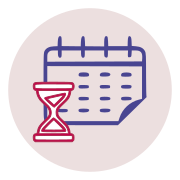 Yes, it’s hard to hit the ground running in the morning. It’s tempting to mark easy tasks off your to-do list—switching over your laundry or checking email in a few minutes, but you never stop there. The sense of accomplishment you’ll get from such small things usually never builds up.
Yes, it’s hard to hit the ground running in the morning. It’s tempting to mark easy tasks off your to-do list—switching over your laundry or checking email in a few minutes, but you never stop there. The sense of accomplishment you’ll get from such small things usually never builds up.
Small tasks may make you feel as if you’re being super-productive, but when you start your working day with such a laid-back approach, it’s easy to get stuck in a pattern of avoiding demanding, complicated tasks. When you reach the end of the day, you’ll find you’ve not achieved anything substantial at all—just a lot of ‘stuff’ that won’t make much difference. Tackling your easiest tasks first won’t build confidence for the harder ones.
In his bestselling book Eat That Frog! : 21 Great Ways to Stop Procrastinating and Get More Done in Less Time (2001,) self-help author Brian Tracy recommends taking on the most challenging task first—the large, hideous frog. Your frog is almost certainly the task you’re most likely to put on the back burner, but it’ll also have the greatest impact.
If you want to trick your brain into getting started, use my 10-Minute Dash Technique to launch that first step of the ‘frog’ that’s the toughest. Within 10 minutes, you’ll find that getting started and feeling good about your progress means it’s easy to build momentum. Seemingly difficult tasks get easier once you get working on them. That’s how you lower the threshold for taking action and building momentum. When you’ve accomplished a high-impact ‘frog,’ you can power through the rest of the day knowing that your most important task has been achieved.
Idea for Impact: Unleash your productivity potential. Don’t fill your day with small things that add up. Yes, you can move over the laundry in a few minutes, but don’t stop there.
 Whenever someone requests something from you, or when you embark on a task yourself, it’s essential to always establish a clear deadline.
Whenever someone requests something from you, or when you embark on a task yourself, it’s essential to always establish a clear deadline..jpg)